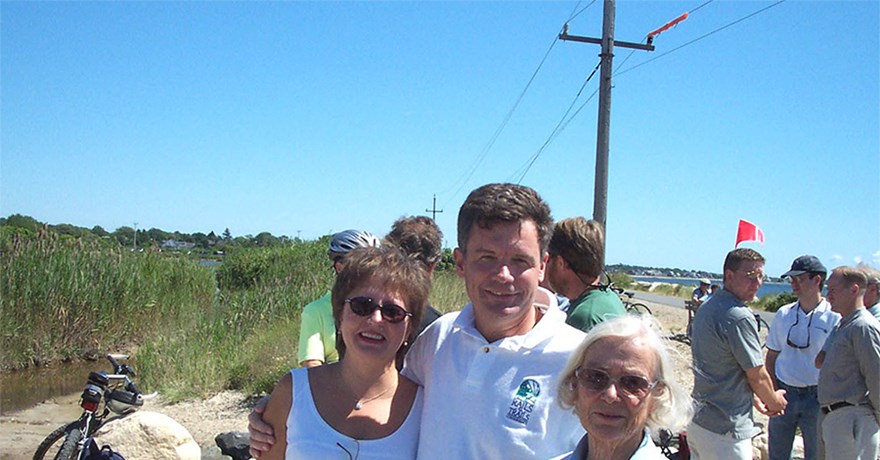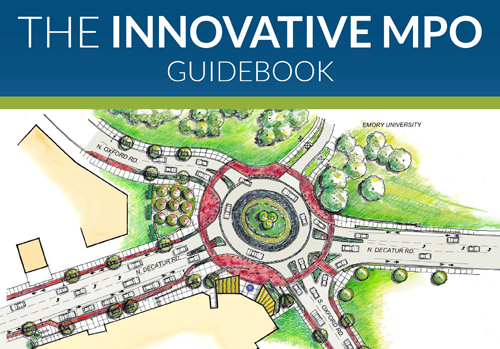

David Burwell with his wife Irene, left, and mother Barbara. Photo via the Rails to Trails Conservancy, which David founded.
The transportation reform community lost one of its most passionate and thoughtful voices earlier this month with the passing of David Burwell. This loss has affected many of us deeply at Transportation for America given David’s early role in our founding and his remarkable lifelong work advancing revolutionary ideas and building institutions that are dedicated to sustainable transportation solutions.
I count myself among the many fortunate individuals who got to work for David, as his employee while he served as President of the Surface Transportation Policy Project in the early 2000s.
It was an early book published by the then-lawyer Burwell in 1977, The End of the Road: A Citizen’s Guide to Transportation Problem-Solving, that first got me hooked on transportation policy. Unlike most transportation and urban planning texts I had read when I was fresh out of college in the early 1990s, David told the human story of what the interstate construction program meant for real people, real neighborhoods and race relations in urban America in the 1960s. It was a story that inspired me to do more in the transportation field, and one that so eloquently articulated the perils of leaving the public out of critical infrastructure decisions.
If you weren’t lucky enough to know David as well as I did, you are nevertheless indebted to him in countless ways.
As the founder and CEO of the Rails-to-Trails Conservancy, he built a fearless organization that has literally reconnected America with over 22,000 miles of trails built along the beautiful spines of old railroad corridors, corridors that would otherwise have been abandoned and lost forever.
As President of the Surface Transportation Policy Project, he helped build a remarkably diverse coalition that for the first time knitted together local elected officials, public health professionals, civil rights organizations and business leaders who helped win progressive reforms and significant funding for multimodal transportation projects in Congress.
And most recently during his tenure at the Carnegie Endowment for International Peace he advanced some of the most creative and thoughtful policy ideas to reduce greenhouse gas emissions, lower our dependence on oil and increase revenue for “greener” federal transportation projects. And he did it all, throughout the two decades I was lucky enough to know him, with charm, grace, passion and poise — and a knowing twinkle in his eye whether he was debating friend or foe.
David’s insight, energy and leadership will truly be missed. It should serve as a guiding and inspiring light for all of us who are working tirelessly to build on his legacy.
This piece was written by James Corless, Director of Transportation for America. Our thoughts are with David Burwell’s family as they mourn his passing. – Ed.




